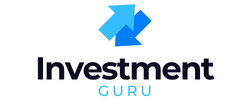The world of online business ideas continues to expand rapidly, especially as remote work, e-commerce, and digital services dominate the modern economy. Entrepreneurs in 2025 have access to more tools, platforms, and global markets than ever before. Whether you’re looking to build a full-time company or a side hustle, the right online business can unlock financial independence and long-term growth opportunities.
Table of Contents
Why Start an Online Business in 2025?

Starting an online business has never been more compelling. The global shift to digital commerce accelerated dramatically during the 2020s, and consumer buying behaviors have changed for good. By 2025, online retail sales are projected to reach over $7 trillion, according to Statista, signaling massive opportunities for entrepreneurs who tap into the right niches.
Other advantages include:
- Low startup costs compared to brick-and-mortar businesses.
- Access to global audiences and borderless markets.
- Scalability using technology, automation, and remote teams.
- Flexibility in work-life balance and location independence.
Top Online Business Ideas for 2025
Now, let’s dive into the most promising and profitable online business ideas for 2025. Each one varies in startup investment, skill requirements, and earning potential, so compare carefully before making your choice.
1. E-commerce Store
Running an online store is one of the most established and profitable digital business models. Entrepreneurs can sell physical products through platforms like Shopify, WooCommerce, or Amazon FBA. Niche stores focusing on eco-friendly goods, personalized gifts, or health supplements are trending strongly in 2025.
2. Online Education & Digital Courses
With e-learning revenues expected to surpass $400 billion by 2027, course creation is one of the best online business ideas. If you’re an expert in a topic, you can monetize your skills through platforms like Udemy, Teachable, or Kajabi.
3. Freelance Services
Freelancing platforms like Upwork and Fiverr continue to provide avenues for writers, designers, marketers, and developers to work with global clients. In 2025, demand is particularly strong for cybersecurity specialists, AI strategists, and digital marketers.
4. Affiliate Marketing
Affiliate marketers promote products from other companies and earn a commission on sales. With niche websites, email lists, and YouTube channels, you can generate passive income streams. Be mindful of FTC disclosure rules found on the FTC’s endorsement guidelines.
5. Subscription Box Services
Curated subscription boxes—such as wellness products, snacks, or pet accessories—continue to thrive online. Using e-commerce tools combined with recurring billing software, entrepreneurs can build predictable monthly revenue.
6. Print-on-Demand Products
Print-on-demand lets you sell custom apparel, mugs, and posters without holding inventory. The supplier prints and ships for you when a customer orders. This makes it a low-risk model for creative entrepreneurs.
7. Virtual Consulting and Coaching
If you have professional expertise, virtual consulting is a lucrative model. Business, finance, and wellness coaches can monetize skills through one-on-one sessions or group packages.
8. AI-Powered Content Services
Artificial Intelligence is transforming industries, and entrepreneurs who leverage AI tools can create scalable businesses. Examples include AI copywriting services, data analysis support, or personalized chatbots for companies.
9. Niche Blogging & Authority Sites
Blogging remains profitable when executed strategically. By focusing on high-demand topics, building authority, and monetizing through ads, sponsorships, and affiliate marketing, you can build passive income while growing your audience.
10. Digital Marketing Agency
As more businesses move online, digital marketing agencies that offer SEO, social media management, and paid advertising support are in demand. Entry barriers are low, but competition requires specialized skills to stand out.

Comparison: Low-Investment vs. High-Investment Online Businesses
| Type of Online Business | Startup Costs | Scalability | Risk Level |
|---|---|---|---|
| Freelancing | Very Low (Under $200) | Moderate | Low |
| Affiliate Marketing | Low ($200–$1,000) | High | Low to Medium |
| E-commerce Store | Medium ($1,000–$10,000) | High | Medium |
| Subscription Boxes | Medium to High ($5,000+) | High | Medium to High |
| Digital Agency | Low ($500–$5,000) | High | Medium |
Steps to Start Your Online Business in 2025
- Identify Your Niche: Choose areas with high demand and low competition.
- Create a Business Plan: Map out revenue streams, marketing channels, and expenses.
- Register Your Business: Depending on your country, follow legal requirements. In the U.S., resources from the Small Business Administration can guide you.
- Build Your Online Presence: Set up a website, social media, and branding.
- Launch and Market: Use SEO, paid ads, influencer partnerships, and networking.
- Scale: Automate processes, hire support staff, and expand reach.
Monetization Strategies for Online Businesses
Even within the same idea, there are multiple ways to monetize. For example, an online education business can profit from paid courses, membership communities, and sponsorships. A blogger can monetize via display ads, affiliate links, digital products, or paid newsletters. Diversifying revenue streams reduces risks and increases stability.
Tools and Resources to Succeed in 2025
- E-commerce: Shopify, WooCommerce, BigCommerce
- Course Creation: Teachable, Kajabi, Thinkific
- Freelancing: Upwork, Fiverr, Toptal
- Marketing: HubSpot, Mailchimp, SEMrush
- Finance: QuickBooks, FreshBooks, Wave Accounting
FAQs about Online Business Ideas in 2025
1. What are the easiest online businesses to start in 2025?
Freelancing, affiliate marketing, and blogging are among the easiest because they require minimal upfront investment.
2. How much money do I need to start an online business?
Costs vary widely. A freelance business may require under $200, while an e-commerce store can require several thousand dollars.
3. Which online businesses are most profitable?
Digital courses, e-commerce, and subscription services are consistently among the most profitable due to scalability and recurring revenue models.
4. Do I need formal education to start an online business?
No, but certain fields (like consulting or health coaching) may require credentials to build trust and meet legal requirements.
5. How long does it take to start making money?
Freelancers can earn within weeks, while blogs or affiliate sites may take 6–12 months to generate significant income.
6. What legal steps should I take before starting?
You should choose a business structure, register your entity, and review tax obligations. The IRS Small Business portal provides guidance for U.S. entrepreneurs.
7. Are online businesses safe from economic downturns?
Some industries, like e-learning and digital marketing, are resilient, but all businesses carry some risk. Diversifying income sources helps mitigate downturn risks.
8. Can I run multiple online businesses at once?
Yes, but it’s advisable to focus on one until it’s profitable. Managing multiple startups simultaneously can spread you too thin.
9. What skills do I need?
Success often requires digital marketing, communication, time management, and an understanding of technology tools.
10. How do I scale an online business?
Scaling includes automating systems, outsourcing tasks, developing multiple revenue streams, and reinvesting profits back into growth.
Conclusion
Online entrepreneurship in 2025 offers unparalleled opportunities for those who are prepared to take action. From freelancing to AI-driven services, small digital ventures can quickly transform into global enterprises. The key is to identify the right fit for your skills and market demand—then commit to building consistently. Take the leap into one of these online business ideas, and you could be on your way to financial independence, flexibility, and business success this year.


